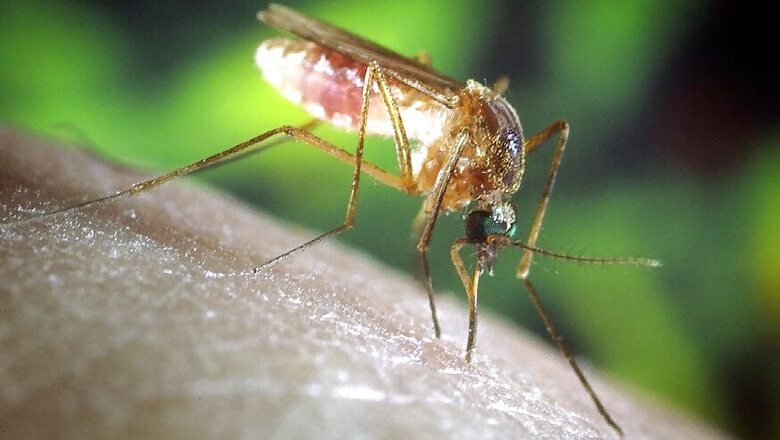
views
Spread by bite of female mosquito Aedes aegypti -Dengue has infected several people across Asia. The disease is spread by mosquitoes that breed in stagnant water. This year, dengue fever outbreak was alarming in Bangladesh where there was panic all over, with people urgently seeking for blood. On a single day in August, nearly 2,500 patients tested positive of dengue and were admitted in hospitals. It was the worst outbreak in the history of Bangladesh, as hospitals ran out of bed with more patients getting admitted. Not just this, the prices of mosquito repellants also surged during the past few days with increase in demand.
Dengue and other mosquito-borne diseases like malaria, zika virus, chikungunya, zika virus, Yellow fever, among others spread mostly during the monsoon and post-monsoon seasons.
Initial symptoms of dengue include high fever, excruciating headache, joint and muscles pain, nausea, vomiting, soaring of eyes, fatigue among others. Platelets count of a person drops in case the disease turns severe. People facing any of the symptoms must rush to a doctor and get the necessary tests done and follow what he/she is prescribed by the doctor. One should also take adequate rest and increase the intake of liquid.
Elderly people, children, pregnant women, people with low immunity are more prone to these mosquito borne disease.
According to the United Nations Development Programme (UNDP) report, there has been a 30-fold increase in dengue cases in the last 50 years. Among an estimated 2.5 billion people at risk for dengue, 70 percent of them are in the Asia-Pacific region, the report said.
According to UNDP, in Philippines dengue has claimed 622 lives and the mosquito-borne disease has affected a whopping 146,000 people. While, dengue cases in Thailand this year are 20,000 almost double from last year with children suffering the most.
In Srilanka, 2 lakh people contracted dengue in till August this year and the over 100 people have died of the mosquito-borne disease.
Till date, there is no specific treatment for dengue, but early detection and timely as well as proper medical care can lower mortality to below one percent, reports UNDP.
Climate change and changing patterns of rainfall, humidity are leading to longer to longer breeding spells for the mosquitoes that carry the virus, and diminishing disease incubation times. This is leading dengue epidemics to become much more unpredictable in terms of when and where they occur, and their scale, overwhelming health systems, the report said.
Rapid and unplanned urbanisation, living conditions for the urban poor and lack of sanitation are all contributing to a surge in numbers of people catching vector-borne diseases such as dengue, it added.
Meanwhile, governments are taking all the adequate measures to prevent the spread of dengue. Various awareness drives and campaigns are being carried out on different platforms and health systems are being strengthened to deal with the rising numbers of dengue patients.
Meanwhile, countries battling the dengue menace should follow the model by Vietnam that has pioneered a system through which the country with the help of satellite data on precipitation and atmospheric pressure, combined with health and water information to produce a dengue-forecasting model designed for this new reality.
The initiative is supported by the UNDP, the World Health Organization, the UK Space Agency, HR Wallingford, the London School for Hygiene and Tropical Medicines, the UK Meteorological Office and Oxford Policy Management.
The innovative approach looks at dengue and the health effects of climate change as an interaction between the environment and public health. When complete, beneficiaries will be able to receive alerts for dengue outbreaks, and policy-makers will be able to look at assessments of vector-borne disease risk under future climate and land-use change scenarios, the UNDP report said.













Comments
0 comment